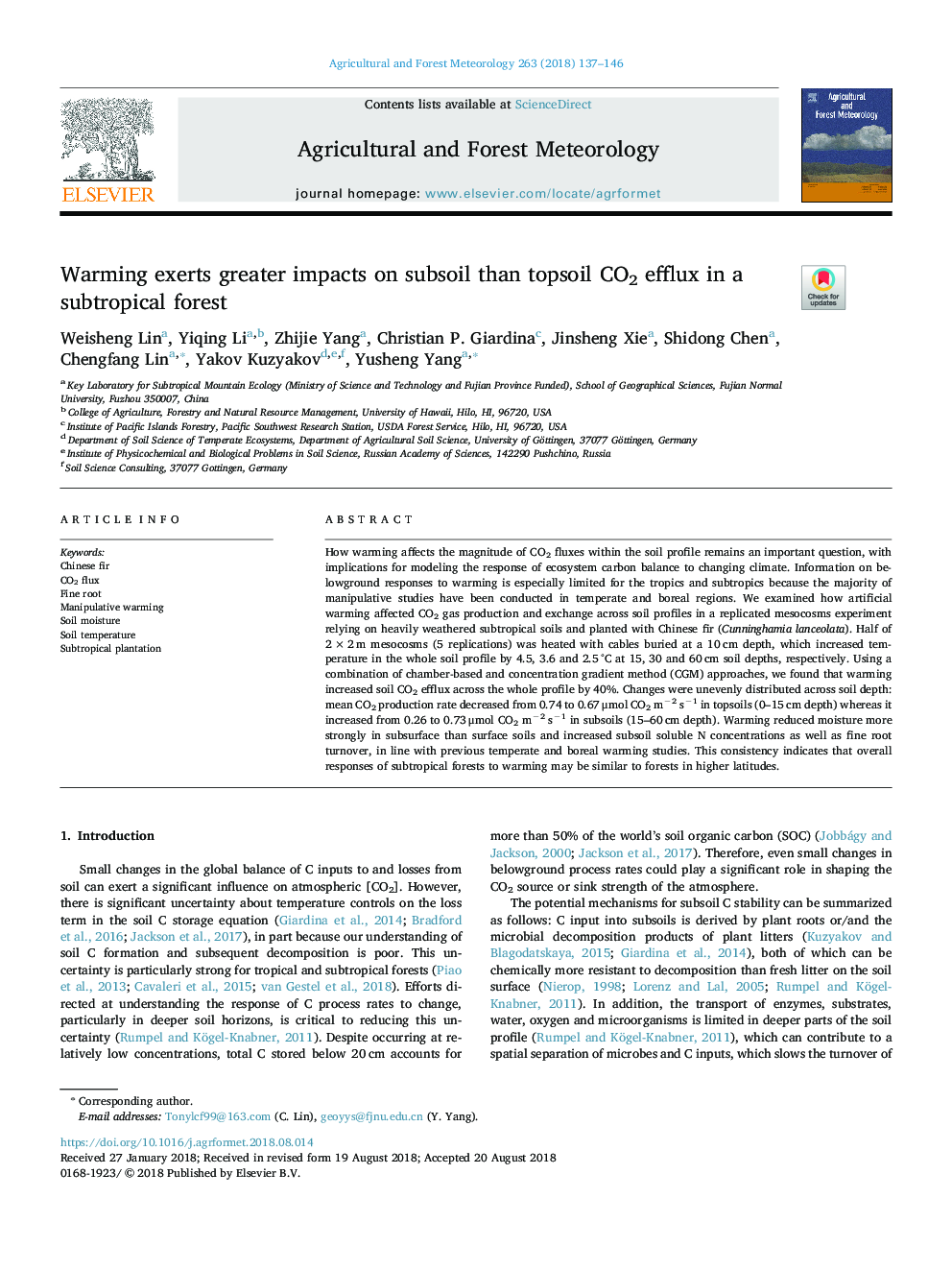| Article ID | Journal | Published Year | Pages | File Type |
|---|---|---|---|---|
| 9951662 | Agricultural and Forest Meteorology | 2018 | 10 Pages |
Abstract
How warming affects the magnitude of CO2 fluxes within the soil profile remains an important question, with implications for modeling the response of ecosystem carbon balance to changing climate. Information on belowground responses to warming is especially limited for the tropics and subtropics because the majority of manipulative studies have been conducted in temperate and boreal regions. We examined how artificial warming affected CO2 gas production and exchange across soil profiles in a replicated mesocosms experiment relying on heavily weathered subtropical soils and planted with Chinese fir (Cunninghamia lanceolata). Half of 2âÃâ2âm mesocosms (5 replications) was heated with cables buried at a 10âcm depth, which increased temperature in the whole soil profile by 4.5, 3.6 and 2.5â°C at 15, 30 and 60âcm soil depths, respectively. Using a combination of chamber-based and concentration gradient method (CGM) approaches, we found that warming increased soil CO2 efflux across the whole profile by 40%. Changes were unevenly distributed across soil depth: mean CO2 production rate decreased from 0.74 to 0.67âμmol CO2 mâ2 sâ1 in topsoils (0-15âcm depth) whereas it increased from 0.26 to 0.73âμmol CO2 mâ2 sâ1 in subsoils (15-60âcm depth). Warming reduced moisture more strongly in subsurface than surface soils and increased subsoil soluble N concentrations as well as fine root turnover, in line with previous temperate and boreal warming studies. This consistency indicates that overall responses of subtropical forests to warming may be similar to forests in higher latitudes.
Related Topics
Physical Sciences and Engineering
Earth and Planetary Sciences
Atmospheric Science
Authors
Weisheng Lin, Yiqing Li, Zhijie Yang, Christian P. Giardina, Jinsheng Xie, Shidong Chen, Chengfang Lin, Yakov Kuzyakov, Yusheng Yang,
